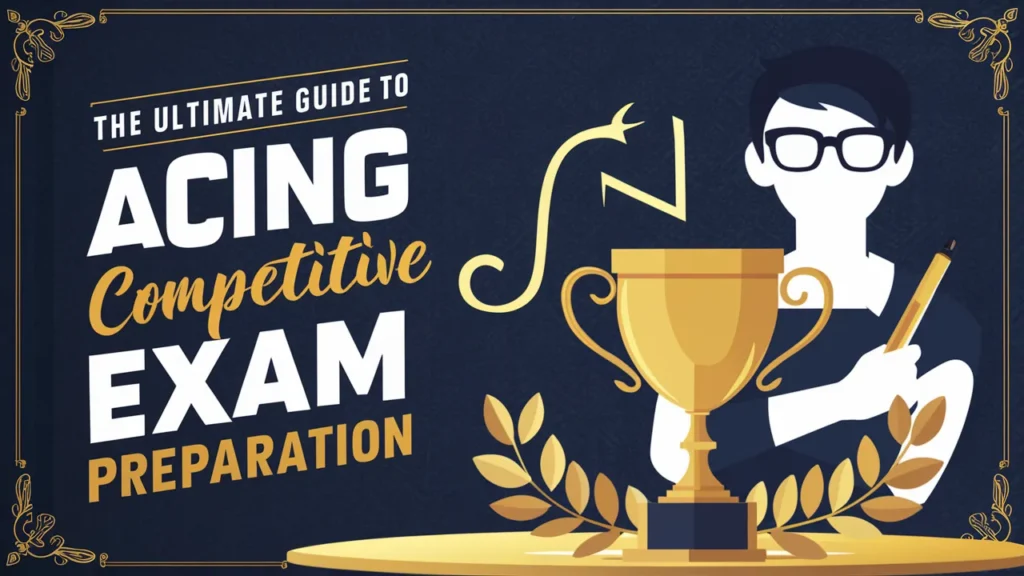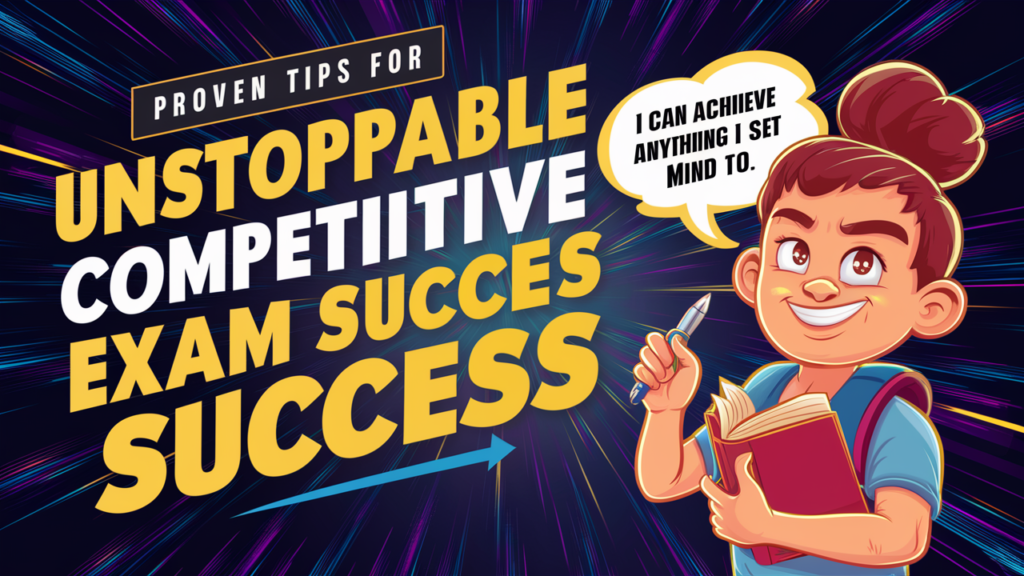
Preparing for competitive exams can be an overwhelming journey filled with long study hours, challenging concepts, and intense competition. While individual study has its own merits, group study can provide unique advantages that can enhance your preparation experience. In this blog, we will explore the numerous benefits of group study for competitive exam preparation, offering insights and tips to maximize your learning in a collaborative environment.
1. Enhanced Understanding Through Collaborative Learning
One of the primary benefits of group study is the opportunity for collaborative learning. When students come together, they bring diverse perspectives and interpretations of the same material. This interaction fosters a deeper understanding of concepts that might seem complex when studied alone.
Why It Matters:
- Different Perspectives: Group members can explain concepts in ways that resonate better with each other, making challenging topics easier to grasp.
- Clarification of Doubts: Students can ask questions and clarify doubts on the spot, facilitating a more thorough understanding.
How to Make It Effective:
- Create a safe environment where everyone feels comfortable asking questions.
- Encourage each member to explain topics in their own words, enhancing retention and understanding.
2. Motivation and Accountability
Studying alone can sometimes lead to procrastination and a lack of motivation. Group study introduces a sense of accountability that can significantly boost your productivity.
Why It Matters:
- Motivational Boost: Being part of a group encourages you to keep up with others, fostering a competitive yet supportive atmosphere.
- Shared Goals: Working towards common objectives can keep everyone focused and committed to their study schedules.
How to Make It Effective:
- Set specific goals for each study session and hold each other accountable for completing assigned tasks.
- Celebrate small victories together to maintain morale and motivation.
3. Improved Time Management
Time management is a crucial skill when preparing for competitive exams. Group study can help students manage their time more effectively by dividing the workload among members.
Why It Matters:
- Efficient Resource Utilization: Group members can cover more topics in less time by splitting the study material.
- Structured Study Sessions: Having a designated study time can create a routine, making it easier to prioritize studies over other distractions.
How to Make It Effective:
- Designate a group leader or rotating facilitator who can keep the study sessions organized and on track.
- Set time limits for each topic to ensure comprehensive coverage of the syllabus without wasting time.
4. Enhanced Retention Through Active Engagement
Active engagement is a powerful learning tool, and group study encourages just that. When students interact, discuss, and teach each other, they are more likely to retain information.
Why It Matters:
- Memory Retention: Explaining concepts to peers reinforces learning and improves memory retention.
- Interactive Learning: Engaging discussions and group activities can make studying more enjoyable and less monotonous.
How to Make It Effective:
- Utilize various interactive methods such as quizzes, flashcards, or group presentations to make the study sessions lively.
- Encourage discussions and debates on complex topics, prompting critical thinking and better understanding.
5. Exposure to Different Study Techniques
Each student has their own unique study methods and techniques. Group study provides an excellent opportunity to discover and adopt new strategies that can enhance individual learning.
Why It Matters:
- Variety of Techniques: Learning about different methods can help students identify what works best for them.
- Adapting Effective Strategies: Observing peers can inspire students to adopt more effective study habits.
How to Make It Effective:
- Encourage group members to share their study techniques, resources, and tools.
- Discuss the pros and cons of different approaches, allowing everyone to refine their study strategies.
6. Development of Communication and Social Skills
Group study not only aids in academic growth but also contributes to personal development. Engaging with peers fosters communication skills and teamwork.
Why It Matters:
- Effective Communication: Regularly explaining concepts to peers enhances verbal communication skills.
- Building Relationships: Studying in groups can lead to strong friendships and professional connections that extend beyond the classroom.
How to Make It Effective:
- Establish ground rules for communication, ensuring everyone has a chance to speak and contribute.
- Encourage active listening and respectful discussions, fostering a positive group dynamic.
7. Stress Reduction Through Shared Experiences
The pressure of preparing for competitive exams can lead to anxiety and stress. Group study provides a supportive environment where students can share their challenges and coping strategies.
Why It Matters:
- Emotional Support: Knowing others are facing similar struggles can alleviate feelings of isolation and stress.
- Shared Strategies: Group members can exchange tips for managing stress and anxiety, leading to improved overall well-being.
How to Make It Effective:
- Create a safe space for sharing feelings and experiences related to exam preparation.
- Include discussions about stress management techniques, such as mindfulness, exercise, and time management strategies.
8. Networking Opportunities
Engaging with peers during group study can lead to valuable networking opportunities. Building connections with fellow students can provide long-term benefits beyond exam preparation.
Why It Matters:
- Future Collaborations: Networking can lead to collaborative projects, study groups, or even job opportunities down the line.
- Resource Sharing: Connections can facilitate the sharing of resources, such as study materials, notes, or mentorship.
How to Make It Effective:
- Encourage group members to stay in touch after study sessions, fostering ongoing relationships.
- Share information about internships, scholarships, or academic events that may benefit the group.
9. Flexibility and Diverse Learning Environment
Group study often allows for more flexibility in learning. Students can tailor their sessions to meet individual and collective needs, accommodating various learning styles.
Why It Matters:
- Adapting to Needs: Group study can be modified based on the collective needs and preferences of the members.
- Comfortable Learning Environment: The informal setting can reduce anxiety and create a more comfortable learning atmosphere.
How to Make It Effective:
- Discuss and agree on the best times, locations, and study formats that suit all group members.
- Incorporate various teaching methods to cater to different learning styles, such as visual aids, discussions, and hands-on activities.
10. Enhancing Problem-Solving Skills
Working together in a group often involves tackling complex problems collectively. This collaborative approach enhances critical thinking and problem-solving skills.
Why It Matters:
- Diverse Solutions: Different perspectives lead to innovative solutions and approaches to complex problems.
- Teamwork Skills: Collaborating with others fosters teamwork and enhances overall problem-solving capabilities.
How to Make It Effective:
- Encourage brainstorming sessions where group members can propose different solutions to a problem.
- Assign complex problems for group discussion, allowing members to explore various solutions collaboratively.
Conclusion
Group study can be an invaluable asset in your competitive exam preparation journey. The collaborative learning environment fosters motivation, accountability, and deeper understanding of concepts while providing essential social skills and emotional support. By leveraging the benefits of group study, you can enhance your learning experience and boost your chances of success in competitive exams.
When done right, group study can transform your preparation strategy, making it more engaging and productive. So gather your peers, set your goals, and make the most of your study sessions together. Happy studying!


